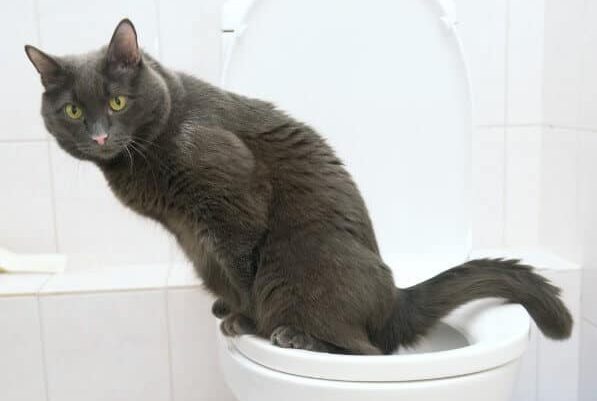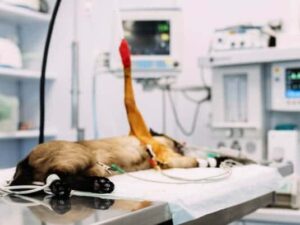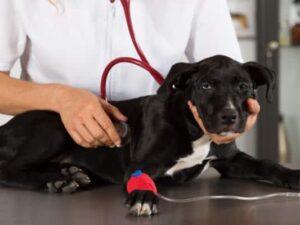
Menu


£20.00 Original price was: £20.00.£10.00Current price is: £10.00. Ex VAT
Archived
Type: eCPD Tutorial
Start: On-demand / Unlimited Lifetime Access
CPD: 70 minutes (UK), 1 point (AUS, NZ)
Level: Introduction / Intermediate
This 70 minute eCPD tutorial will discuss how the majority of cases of feline lower urinary tract disease (FLUTD) represent feline idiopathic cystitis (FIC), with estimates ranging between 50 and 70 %. Whilst the underlying aetiology of this complex, challenging, painful and often recurrent condition remains elusive, stress has been identified as a major contributing factor. In cases of non-obstructive FIC, medical management alone therefore is not enough. Behavioural therapy has a significant contribution to make as a routine part of the treatment programme of affected cats in a situation that is frequently distressing for both patients and their owners. The tutorial will include:
Francesca Riccomini BSc (Hons), BVetMed, CCAB, MRCVS, DipAS (CABC) – Retired
Riccomini Behaviour Referrals – Retired
The course is worth 70 minutes of CPD for UK delegates and 1 AVNAT point for Australian and New Zealand delegates
The course is provided with unlimited lifetime access for on-demand learning
Complimentary course notes to accompany this tutorial are included
Release date: Jul 2018
Francesca Riccomini BSc (Hons), BVetMed, CCAB, MRCVS, DipAS (CABC) – Retired
Riccomini Behaviour Referrals – Retired
Francesca graduated from the Royal Veterinary College in 1974. During a long career in small animal practice her deepening interest in companion animal behaviour and its impact on welfare and the human-animal bond led to a Post-Graduate Diploma in Companion Animal Behaviour Counselling from Southampton University in 2001. She then ran a behaviour referral service seeing cases referred by first opinion practices. An ASAB accredited Certified Clinical Animal Behaviourist, member of the Association of Pet Behaviour Counsellors (APBC), and the Feline Advisory Bureau’s (FAB) Behaviour Expert Panel, she spoke and wrote behaviour related books and articles for a number of publications. Francesca’s particular interests included the welfare implications of pet owning for animals and their owners, feline behaviour and geriatric pets whatever their species. Francesca has now retired from the veterinary profession to concentrate on her passion for writing
Upon purchase, the tutorial will be immediately available to view from ‘My Courses’ (along with your course notes, if available). Every eCPD tutorial now comes with lifelong access, so you can view the tutorial as may times as you like, with no time limits!
If you make any personal notes during the tutorial using ‘take notes’, these will be saved, along with your certificate and CPD record for permanent access in ‘My Courses’.
This online course is worth 70 minutes of CPD.
A certificate will be available from the ‘My Courses’ section, for you to download and print, once you have completed the course. A permanent record of your total CPD hours will also be recorded in your account section.
The Australian Veterinary Nurse and Technician (AVNAT) Regulatory Council has allocated 1 AVNAT CPD point to this continuing education activity.
This course is also recognised by the New Zealand Veterinary Nursing Association (NZVNA) as providing 1 CPD point.
This course has been listed as ‘Introduction / Intermediate’ level
All of our courses are aimed at veterinary nurses in general practice, but everyone who works in the veterinary profession is very welcome to attend, whether you are a clinical receptionist, veterinary surgeon, student nurse or have been a qualified nurse for over 20 years!
The courses are not formally assessed for skill level, so the following CPD levels are just a rough guide to help you decide if a course may be more or less suitable:
Intermediate
– maybe most suitable for qualified nurses in general practice approaching a new topic or looking for a refresher course
Intermediate
– maybe most suitable for qualified nurses in general practice along with referral / specialist nurses looking for a refresher course
Advanced
– maybe most suitable for referral / specialist nurses and highly experienced qualified nurses in general practice
You will earn 10 Pawprint Points (£1.00 website credit) when you purchase this course
Our loyalty scheme rewards you with 10% in website credit to spend on future courses. Choose pay with Pawprint Points during checkout.
Please ask your practice manager or accounts department to visit the website, register an account in their own name, and during checkout, complete the ‘delegate name’ and ‘delegate email’ sections with your personal details. We will then register you a personal account on your behalf, and transfer the course booking over to your new personal account. We will of course email you all the information you need to access this new account and your CPD course.
If you need an invoice and no other payment method is available to you, then please email [email protected] with all the following information:
Please note the following:





Excel CPD specialises in providing online CPD for veterinary nurses and technicians all over the globe. Our courses are also fully approved by AVNAT for our nursing colleagues in Australia and New Zealand.
©2009-2024 Excel CPD | Terms and Conditions | Privacy Policy